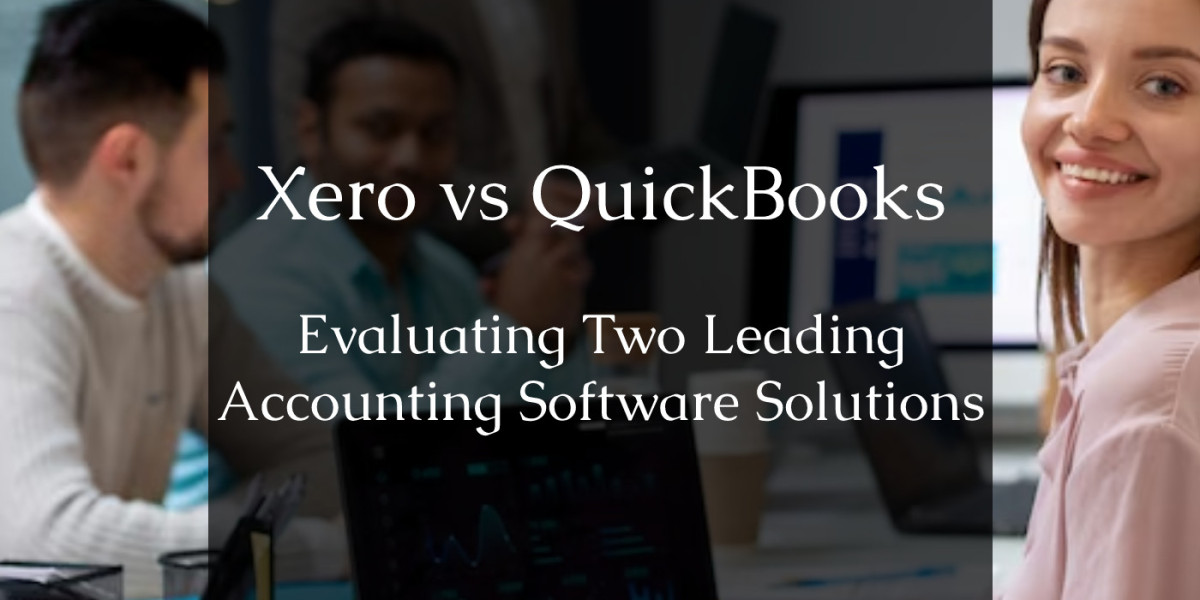As a small business owner, managing your financials is crucial to your success. With so many accounting software options available, it can be overwhelming and time-consuming to choose the right one for your business. Two of the most popular choices are Xero and QuickBooks. In this blog post, we will compare Xero vs QuickBooks and help you make an informed decision on which one is best suited for your small business needs. So let's dive in!
Comparing Xero vs QuickBooks
When it comes to comparing Xero vs QuickBooks, there are several factors to consider. Both software options offer similar features and benefits but differ in certain areas.
One key difference is the pricing structure. Xero offers a tiered pricing system based on the number of users, whereas QuickBooks charges a flat monthly fee for access to all its features.
Another factor to consider is ease of use. While both software options have user-friendly interfaces, some businesses may find one more intuitive than the other.
In terms of integrations, both Xero and QuickBooks allow for seamless integration with third-party apps and services. However, some users may prefer one platform over the other depending on their specific needs.
Taking into account these various aspects can help you determine which option will best suit your small business requirements.
Xero Overview
Xero is a cloud-based accounting software designed to help small businesses manage their finances with ease. It was launched in 2006 and has since grown rapidly, becoming one of the top accounting solutions available on the market.
One of the key benefits of Xero is its user-friendly interface. The dashboard provides an overview of your financials, making it easy to track income and expenses, view bank balances, and generate reports. Additionally, Xero integrates with over 800 third-party apps which allow you to customize your experience even further.
Another advantage of Xero is its robust invoicing feature. You can create professional invoices quickly and easily using customizable templates that suit your brand identity. You can also set up automatic reminders for late payments or schedule recurring invoices so you don't have to worry about manually sending them out each month.
Xero offers a comprehensive suite of features that make managing your finances less stressful. Its accessibility from anywhere via the cloud means that you can keep on top of things whether at home or work - without having to install any software locally!
QuickBooks Overview
QuickBooks is one of the most popular accounting software for small businesses. It was developed by Intuit in 1983 and has since then become a go-to tool for many entrepreneurs.
One of the things that make QuickBooks stand out is its user-friendly interface, which makes it easy to navigate even for beginners. The platform offers different versions depending on your business needs - QuickBooks Online, Desktop, Self-Employed, and Enterprise.
QuickBooks allows you to manage all your financial transactions from invoicing your customers to managing expenses and payroll processing. You can also connect your bank accounts and credit cards with QuickBooks, making it easier to track expenses.
Another key feature of QuickBooks is its ability to generate reports such as profit and loss statements, balance sheets, cash flow statements among others. This helps business owners keep track of their financial health at any given time.
QuickBooks’s robust features coupled with an easy-to-use interface make it an ideal choice for small business owners looking for a complete accounting solution.
The Pros and Cons of Xero vs QuickBooks
Both Xero and QuickBooks have their fair share of advantages and disadvantages. Understanding these can help you make an informed decision on which software best suits your business needs.
One of the main benefits of Xero is its user-friendly interface, making it easy for beginners to navigate. It also offers a wide range of third-party integrations, giving users more flexibility in customizing their workflow.
On the other hand, QuickBooks has been around longer and has established itself as a trusted brand among accountants. Its robust reporting capabilities allow businesses to generate detailed financial statements that are crucial in making informed decisions.
However, one disadvantage of Xero is that it may not be as suitable for larger businesses with complex accounting needs. Meanwhile, QuickBooks' pricing plans can be quite expensive compared to Xero's flexible subscription options.
In terms of customer support, Xero vs QuickBooks both software offer phone and email assistance but some users have reported longer wait times with QuickBooks' support team.
Weighing the pros and cons will depend on your specific business requirements.
Which One Should You Choose for Your Small Business?
When it comes to choosing between Xero vs QuickBooks for your small business, there are a few key factors to consider. Think about what you need from an accounting software – do you require advanced features such as inventory management or payroll processing? Or are the basic bookkeeping functions enough for your needs?
Another important factor is ease of use. Both Xero and QuickBooks offer intuitive interfaces, but some users may find one more user-friendly than the other. It's worth trying out both platforms before making a decision.
Pricing is also a consideration – Xero has slightly higher subscription costs than QuickBooks, but this might be offset by its range of features. However, if cost is a primary concern then QuickBooks could be the better option.
It's worth considering any integration that you require with other business tools such as payment processors or CRM systems. Both Xero and QuickBooks have extensive app marketplaces which can help streamline your business processes.
There isn't a clear-cut answer when it comes to choosing between Xero vs QuickBooks – each platform has its own strengths and weaknesses depending on your individual requirements. However with careful research into each platform's offerings alongside consideration of price points that meet budgets; businesses will find their perfect match in no time!
Conclusion
After comparing Xero vs QuickBooks, it's evident that both software options are excellent choices for small businesses. The decision of which one to choose comes down to your specific business needs and preferences.
If you're looking for a user-friendly platform with a more modern interface, Xero may be the right choice for you. Its cloud-based system allows for easy access from any device and its affordable pricing plans make it an attractive option for small businesses on a budget.
On the other hand, if you're seeking robust accounting features and prefer desktop software over cloud-based systems, then QuickBooks might be the better option for your business.
No matter which one you choose, remember that both Xero and QuickBooks offer numerous benefits in terms of financial management solutions. Choosing the right software can help streamline your business operations while saving time and reducing errors in your bookkeeping process.



